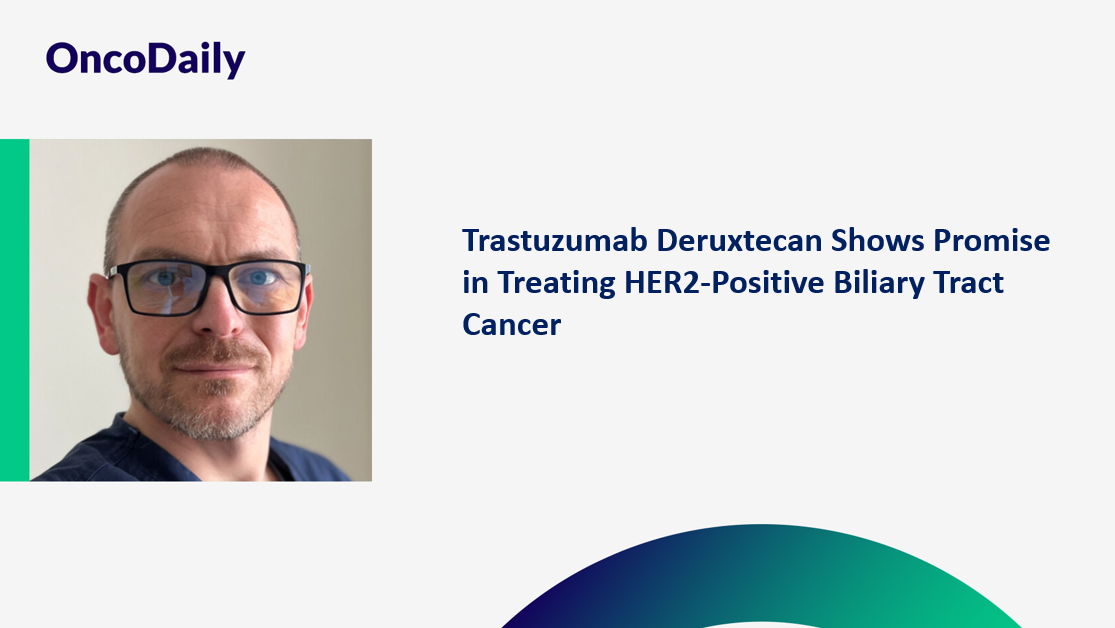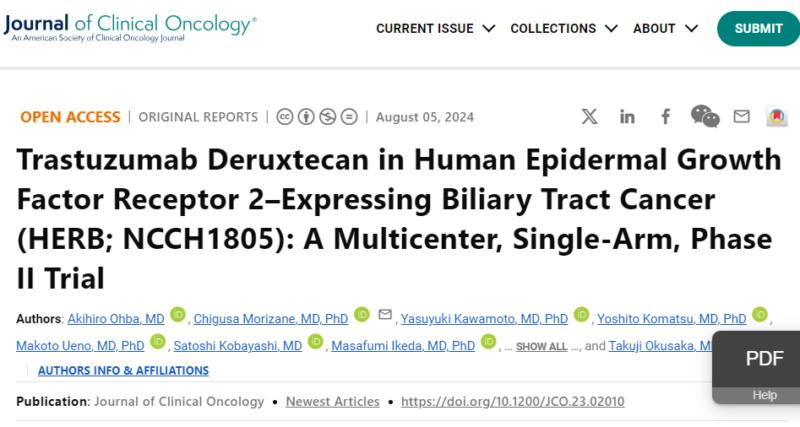
Piotr Wysocki: Trastuzumab Deruxtecan Shows Promise in Treating HER2-Positive Biliary Tract Cancer
Piotr Wysocki recently shared on LinkedIn:
“A recent phase II clinical trial conducted across five institutions in Japan has investigated the efficacy of Trastuzumab Deruxtecan (T-DXd) in patients with unresectable or recurrent biliary tract cancer (BTC) expressing the human epidermal growth factor receptor 2 (HER2). This study focused on patients who had not responded to gemcitabine-containing regimens.
Study Details:
- Participants: 32 patients with HER2-positive or HER2-low BTC.
- Treatment: Patients received 5.4 mg/kg of T-DXd every three weeks until disease progression or unacceptable toxicity.
- Primary Endpoint: The main measure was the objective response rate (ORR) for HER2-positive BTC.
Results:
- HER2-Positive BTC: 36.4% of patients (8 out of 22) showed a confirmed objective response, including two complete responses. The median time to response was 1.6 months, and the median duration of response was 7.4 months. Disease control rate was 81.8%.
- HER2-Low BTC: One patient achieved a partial response, with an ORR of 12.5% and a disease control rate of 75.0%.
- Progression-Free Survival (PFS): Median PFS was 5.1 months for HER2-positive BTC and 3.5 months for HER2-low BTC.
- Overall Survival (OS): Median OS was 7.1 months for HER2-positive BTC and 8.9 months for HER2-low BTC.
- Safety: Common severe side effects included anemia (53.1%) and neutropenia (31.3%). Interstitial lung disease occurred in 25.0% of patients, with two fatal cases.
Conclusion: Trastuzumab Deruxtecan demonstrated promising effectiveness in treating HER2-positive biliary tract cancer and showed potential benefits for HER2-low BTC patients. While the treatment’s safety profile was generally manageable, careful monitoring for interstitial lung disease is crucial.
This study highlights the potential of T-DXd as a treatment option for HER2-positive BTC, offering hope for improved management of this challenging condition.”
Authors: Akihiro Ohba, Chigusa Morizane, Yasuyuki Kawamoto, Yoshito Komatsu, Makoto Ueno, Satoshi Kobayashi, Masafumi Ikeda, Mitsuhito Sasaki, Junji Furuse, Naohiro Okano, Nobuyoshi Hiraoka, Hiroshi Yoshida, Aya Kuchiba, Ryo Sadachi, Kenichi Nakamura, Naoko Matsui, Yoshiaki Nakamura, Wataru Okamoto, Takayuki Yoshino and Takuji Okusaka.

Source: Piotr Wysocki/LinkedIn
About Piotr Wysocki
Piotr Wysocki leads the Clinical Oncology Department at University Hospital and the Faculty of Oncology at Jagiellonian University-Medical College in Krakow, Poland. As an advisor to the Polish Ministry of Health, he shapes the national cancer strategy.
His clinical expertise spans the systemic treatment of breast, gynecologic, and genitourinary cancers, with a focus on developing innovative metronomic chemotherapy-based therapies for advanced cancer patients who have undergone prior treatment.
Read other posts by Piotr Wysocki published on OncoDaily.
-
Challenging the Status Quo in Colorectal Cancer 2024
December 6-8, 2024
-
ESMO 2024 Congress
September 13-17, 2024
-
ASCO Annual Meeting
May 30 - June 4, 2024
-
Yvonne Award 2024
May 31, 2024
-
OncoThon 2024, Online
Feb. 15, 2024
-
Global Summit on War & Cancer 2023, Online
Dec. 14-16, 2023
